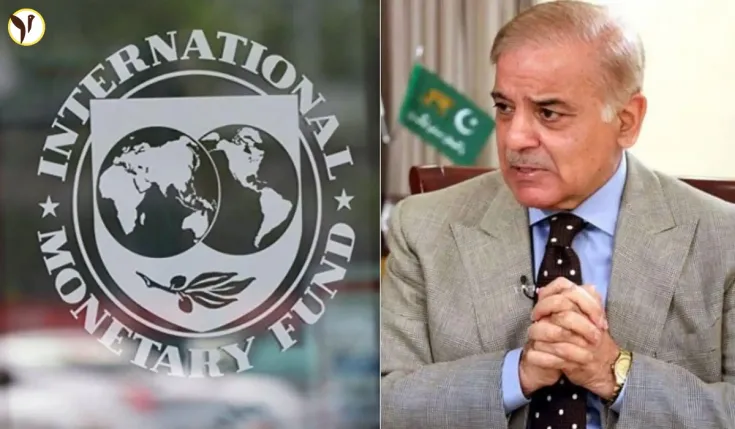IMF Bailout to Pakistan Sparks Tensions with India
The International Monetary Fund (IMF) recently approved a substantial $2.4 billion financial package for Pakistan, fueling a heated debate between India and the global financial institution. The loan, disbursed under the Extended Fund Facility (EFF) and the Resilience and Sustainability Facility (RSF), has raised serious concerns in India about the potential misuse of funds, particularly for cross-border terrorism amidst escalating tensions between the two nuclear-armed neighbors. This article delves into the details of the IMF's decision, India's strong objections, and the broader implications of this controversial bailout.
The IMF's Decision and its Rationale
The IMF's Executive Board approved the release of $1 billion immediately under the EFF and an additional $1.4 billion through the RSF, aimed at bolstering Pakistan's climate resilience and disaster response capabilities. This latest tranche brings the total IMF disbursement to Pakistan under the current EFF arrangement to $2.1 billion. The IMF justified its decision by citing progress in macroeconomic stabilization in Pakistan, including a primary fiscal surplus, decreasing inflation, and an increase in foreign reserves.
- Key Macroeconomic Improvements Cited by IMF:
- Primary fiscal surplus of 2.0% of GDP (FY2025 H1)
- Inflation down to 0.3% in April
- Foreign reserves increased to $10.3 billion, projected at $13.9 billion by June
Despite this progress, IMF Deputy Managing Director Nigel Clarke acknowledged that risks remain, stemming from geopolitical tensions, policy uncertainty, and internal vulnerabilities within Pakistan. He stressed the continued need for fiscal reforms, tax expansion, restructuring of state-owned enterprises, and improved climate-risk management.
India's Strong Opposition and Concerns
India vehemently opposed the IMF's decision, abstaining from the vote – the only form of dissent permitted under IMF rules. India's Ministry of Finance issued a strong statement expressing deep concern over Pakistan's repeated reliance on IMF bailouts and the potential misuse of funds.
- India's Key Arguments:
- Pakistan's dismal track record with IMF loans (28 times in 35 years, four programs since 2019).
- Concerns that funds could be diverted to finance military aggression or state-sponsored terrorism, especially given the recent Pahalgam terror attack.
- Criticism of the lack of meaningful and lasting reforms despite previous IMF assistance.
- Highlighting the significant role of the Pakistani military in the country's economic affairs, undermining transparency and accountability.
India's concerns resonated with several IMF board members, but procedural limitations prevented them from blocking the disbursement. The ongoing military escalations between India and Pakistan further exacerbated the situation, with India viewing the IMF loan as potentially enabling Pakistan's aggressive actions.
Public Reactions and Wider Implications
The IMF's decision sparked a heated public debate, particularly on social media. Indian actress Gul Panag's sarcastic response to a Pakistani journalist celebrating the loan highlighted the stark contrast between India's financial independence from the IMF since 1993 and Pakistan's continued reliance on such assistance. This incident amplified the perception of the IMF's decision as controversial and potentially detrimental to regional stability.
Conclusion
The IMF's $2.4 billion bailout to Pakistan, while justified by the organization on grounds of macroeconomic improvements, has raised serious questions about its efficacy and the potential for misuse of funds. India's strong opposition highlights concerns about Pakistan's track record with IMF loans and the potential for fueling cross-border terrorism. The incident underscores the complex interplay between international finance, geopolitical tensions, and the challenges of providing financial assistance to countries with a history of instability and poor governance. The long-term consequences of this decision remain to be seen, but it undoubtedly casts a shadow on the relationship between India and Pakistan, as well as on the IMF's role in navigating such sensitive geopolitical situations.






